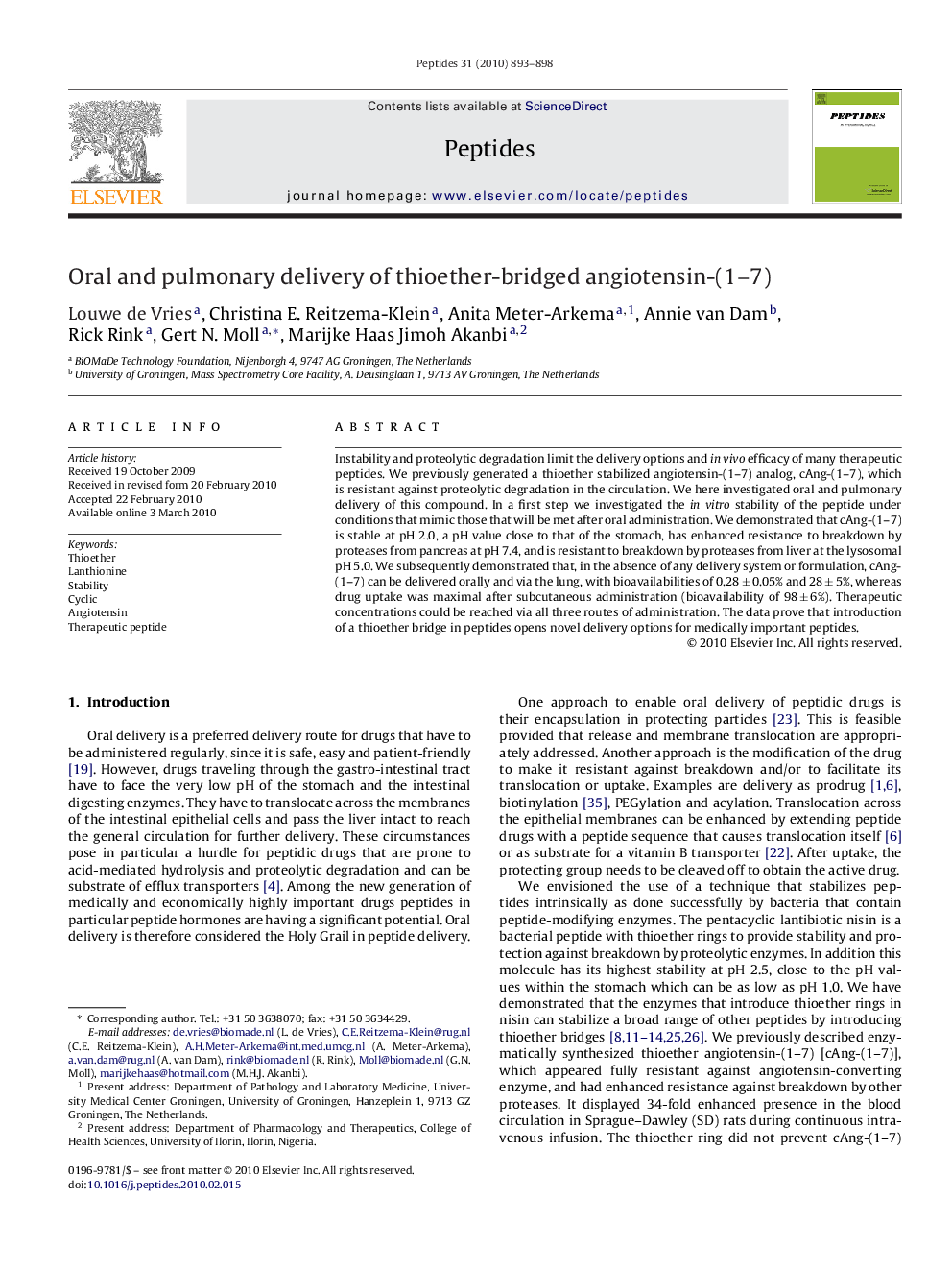| Article ID | Journal | Published Year | Pages | File Type |
|---|---|---|---|---|
| 2006756 | Peptides | 2010 | 6 Pages |
Instability and proteolytic degradation limit the delivery options and in vivo efficacy of many therapeutic peptides. We previously generated a thioether stabilized angiotensin-(1–7) analog, cAng-(1–7), which is resistant against proteolytic degradation in the circulation. We here investigated oral and pulmonary delivery of this compound. In a first step we investigated the in vitro stability of the peptide under conditions that mimic those that will be met after oral administration. We demonstrated that cAng-(1–7) is stable at pH 2.0, a pH value close to that of the stomach, has enhanced resistance to breakdown by proteases from pancreas at pH 7.4, and is resistant to breakdown by proteases from liver at the lysosomal pH 5.0. We subsequently demonstrated that, in the absence of any delivery system or formulation, cAng-(1–7) can be delivered orally and via the lung, with bioavailabilities of 0.28 ± 0.05% and 28 ± 5%, whereas drug uptake was maximal after subcutaneous administration (bioavailability of 98 ± 6%). Therapeutic concentrations could be reached via all three routes of administration. The data prove that introduction of a thioether bridge in peptides opens novel delivery options for medically important peptides.
